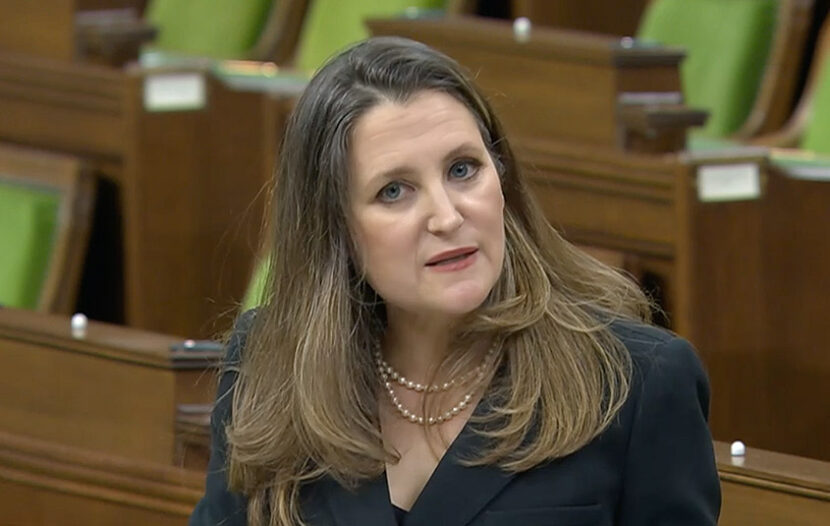TORONTO — News of the extended COVID-19 financial aid programs, while welcome and much-needed, was the only take-away for the beleaguered travel industry from yesterday’s federal budget, and red flags are already being raised about the phasing out of those programs.
As announced by Finance Minister Chrystia Freeland in the 2021 budget, the extension of Canada’s COVID-19 aid programs includes:
- Extending CEWS, CERS and Lockdown Support until Sept. 25, 2021
- Extension of the Canada Recovery Benefit (CRB), by 12 extra weeks
While the CRB will be extended by 12 extra weeks, for a total of 50 weeks, starting July 17 CRB will pay out $300 per week, down from $500, for the final eight weeks before stopping completely.
ACTA President Wendy Paradis said that while ACTA is taking time to review the 724-page budget, ACTA has concerns with the decline in the maximum base and top-up levels beginning in July.
Extended support through to the end of the year — or for at least 90 days after travel restrictions are lifted — has been one of ACTA’s consistent asks from the government for the past many months.
ACTA’s recent survey showed that three-quarters of Canada’s travel agents, ITAs and travel agencies could face insolvency if the government doesn’t extend financial aid programs until the end of 2021, or until 90 days after travel restrictions are lifted.
“Another important piece of information to understand in ACTA’s next steps is that Budget 2021 also proposes to provide the government with the legislative authority to add additional qualifying periods for CEWS, CERS and the Lockdown Support [offering top-ups for CERS] until November 20, 2021, should the economic and public health situation warrant it,” added Paradis.
Yesterday’s budget announcement also included a new program, the Canada Recovery Hiring Program (CRHP), available June – November 2021, that earmarks $595 million to make it easier for business to bring back workers, or hire new ones.
For domestic tourism, the budget also looks to revitalize Canada’s tourism sector through $1 billion to help tourism businesses recover, and to support festivals and cultural events.
There was also funding for Transport Canada and CATSA, for Canada’s airports and air travel security measures.
DIRE SITUATION FOR TRAVEL AGENTS, AIRLINES AND THE INDUSTRY
But the budget delivered nothing specifically for airlines, or the retail travel industry.
In fact, one of the few mentions of travel in the budget is that the government plans to save $1.1 billion over five years, and $222.5 million per year after that, by cutting back on government travel.
It seems that the precedent set by Air Canada’s financial assistance deal with the government, announced April 12 with refunds and commission protection, will see more ‘one at a time’ announcements for airline relief, rather than one package for the entire airline industry.
The National Airlines Council of Canada issued a statement post-budget, saying much work still needs to be done.
“As the government has repeatedly stated, a healthy aviation sector is critical to our economy and our overall recovery from the pandemic. Today’s Budget has taken steps to assist the sector during the immediate crisis. But more work is required, in particular the development of a safe restart plan for aviation and international travel, if we are to restore the hundreds of thousands of Canadian jobs that are supported by the sector and facilitate the economic recovery of communities across every region of Canada”, said Mike McNaney, President and CEO of the NACC.

